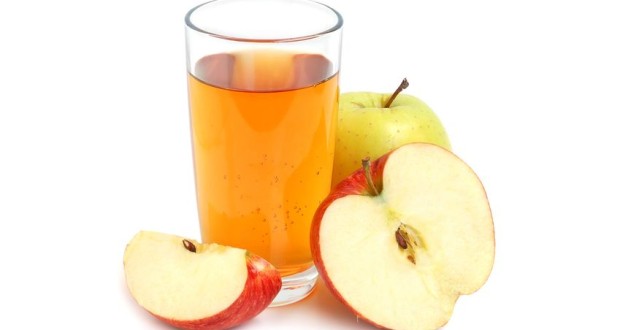One of America’s most well-known doctors, Dr. Mehmet Oz, recently announced to viewers on The Dr. Oz Show the findings of an independent study on arsenic levels in apple juice. The study involved three dozen samples from five different brands of apple juice. The results were startling – out of the thirty-six samples, ten were found to contain levels of arsenic that exceeded the legal amount of arsenic allowed in drinking water. In light of these findings, Dr. Oz recommended to his viewers that they only purchase organic apple juice.
Dangerous Chemicals on Fruits and Veggies
Apple Juice is far from the only product to be tainted by foreign chemicals. Below is a list of some common fruits and vegetables also affected by harmful substances (all pesticide data comes from the USDA Pesticide Data Program):
Apples: 42 total pesticide residues – 7 known or probable carcinogens; 19 suspected hormone disrupters; 10 neurotoxins; 6 developmental or reproductive toxins
Celery: 64 total pesticide residues – 13 known or probable carcinogens; 31 suspected hormone disrupters; 12 neurotoxins; 14 developmental or reproductive toxins
Strawberries: 15 total pesticide residues – 6 known or probable carcinogens; 11 suspected hormone disrupters; 5 neurotoxins; 5 developmental or reproductive toxins
Peaches: 62 total pesticide residues – 10 known or probable carcinogens; 29 suspected hormone disrupters; 12 neurotoxins; 11 developmental or reproductive toxins
Spinach: 48 total pesticide residues – 8 known or probable carcinogens; 25 suspected hormone disrupters; 8 neurotoxins; 6 developmental or reproductive toxins
Nectarines: 33 total pesticide residues – 7 known or probable carcinogens; 19 suspected hormone disrupters; 9 neurotoxins; 6 developmental or reproductive toxins
Grapes (Imported): 34 total pesticide residues – 4 known or probable carcinogens; 17 suspected hormone disrupters; 10 neurotoxins; 6 developmental or reproductive toxins
Sweet Bell Peppers: 49 total pesticide residues – 11 known or probable carcinogens; 26 suspected hormone disrupters; 13 neurotoxins; 10 developmental or reproductive toxins
Potatoes: 37 total pesticide residues – 7 known or probable carcinogens; 12 suspected hormone disrupters; 9 neurotoxins; 6 developmental or reproductive toxins
Blueberries: 52 total pesticide residues – 8 known or probable carcinogens; 24 suspected hormone disrupters; 14 neurotoxins; 7 developmental or reproductive toxins
Lettuce: 51 total pesticide residues – 12 known or probable carcinogens; 29 suspected hormone disrupters; 9 neurotoxins; 10 developmental or reproductive toxins
The Organic Solution
With such rampant pesticide contamination in our fruits and vegetables, it makes perfect sense to go organic. By law, farmers are prohibited from using pesticides on organic products. Therefore, buying organic is an easy way of nourishing your family while also protecting them from harmful chemicals.
 Natural Knowledge 24/7 Educate yourself with nutrition, health and fitness knowledge.
Natural Knowledge 24/7 Educate yourself with nutrition, health and fitness knowledge.






